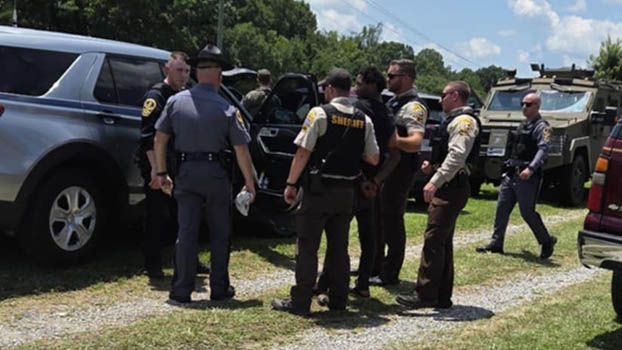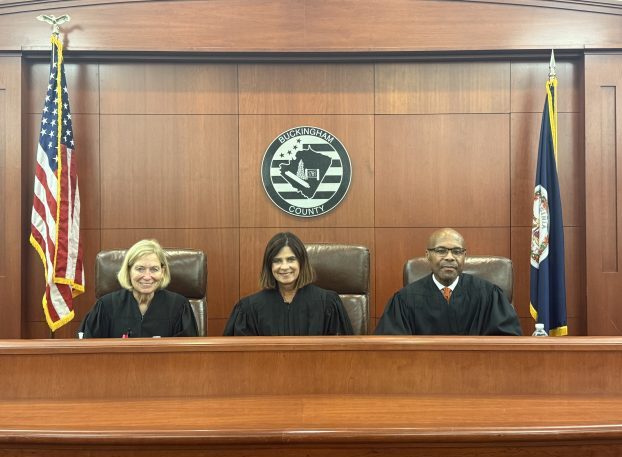Happy to be here: Bigger than any one of us
Published 11:52 am Sunday, July 3, 2022
|
Getting your Trinity Audio player ready...
|
Among Christians, the prayer commonly known as the Lord’s Prayer or the Our Father is well known. I memorized its words when I was a child. Perhaps you did too. My most recently published book, Our Father: Reflections on the Words Jesus Taught Us to Pray (Pier Press, copyright 2022), considers the words and phrases that make up this prayer and what they mean to me in today’s world.
The opening word, “our,” seems especially appropriate as our nation’s birthday celebration brings thoughts of our history and shared identity. You can probably recite the opening phrase of the U.S. Constitution along with me: “We the people of the United States.”
The Constitution and an important prayer both open with words that are so much bigger than any one individual: “We” and “Our.”
When I consider the prayer’s first word, my initial thoughts reflect a narrow perspective. Our — just me and Jesus. Or perhaps my small family. Or my extended family. Or friends and neighbors.
The list keeps growing. Picking up from this point, I’d like to offer you an excerpt from my book’s first chapter, “Our”:
I watch amazed as an entire parade of others marches into my thoughts. My friend whose mother is ill. “Our.” The clerk who bagged my groceries yesterday. “Our.”
I recall a recent emotional wound. I’ve been misunderstood. I went out of my way to do someone a favor, and they misread my motives. My feelings are hurt. “Our?” That other person? In my thoughts, I welcome her into the group standing together with me and Jesus in the “our” of my prayer.
Suddenly, I’m forced to acknowledge that although I’m supposed to love everyone, there are some people I don’t like very much. I don’t think of them as enemies in the sense of adversaries who actively wish me harm, but they certainly don’t qualify as allies. Jesus specifically said to pray for our enemies, so I ask him to let even these people into my prayer.
The word “our” continues to stretch more broadly. It spills out to impact my community. Everything I do impacts my community, and I am impacted by events in my community. “Our” includes those who govern and protect us. It includes the homeless among us. It includes teachers, pastors, and volunteers. Children. Executives of major corporations and owners of small businesses. Office workers. Laborers. Craftsmen and artists. Wait staff and civil servants. Retirees. It even includes villains and thieves. One-by-one all these people walk into my prayer. I gather them under the umbrella of “our.”
And my community is bound together with others in a nation. And our nation is bound together with other nations around the world. In the room where I typically sit to pray, I keep a globe. Sometimes, I get up and give it a spin. “Our.” All people everywhere are united in this one word. When I open my prayer with the word “Our,” I can include them all in my prayer. “Our,” an all-encompassing word.
The universe God created houses more than just people. I don’t know how plants and animals, rocks and water, and planets and stars all fit into the roles assigned to them, but when I incorporate them into the “our” of my prayer, I feel an intimate awe. It deepens my respect for nature. I feel responsible for the stewardship choices I make, and I nod in agreement as Jesus incorporates these elements into my prayer.
“Our” is so big, my mind can’t hold it. Some days, I am overwhelmed by its inclusivity. I spend my entire prayer time letting God open different doors to reveal new rooms within “our.” On other days, different assortments of groups arrive for my prayer time, and my thoughts are shaped by their specific needs. Sometimes the concerns of a friend or a child overshadow everything else. Then, there are days of intensely personal prayer. Just Jesus and me. Jesus, holding my hand as I stand before God. “Our.”
If you’re interested in reading the complete chapter, or the entire book, it’s available for free online. Visit PierPress.com for the link.
Karen Bellenir has been writing for The Farmville Herald since 2009. Her book, Happy to Be Here: A Transplant Takes Root in Farmville, Virginia features a compilation of her columns. It is available from PierPress.com. You can contact Karen at kbellenir@PierPress.com.





